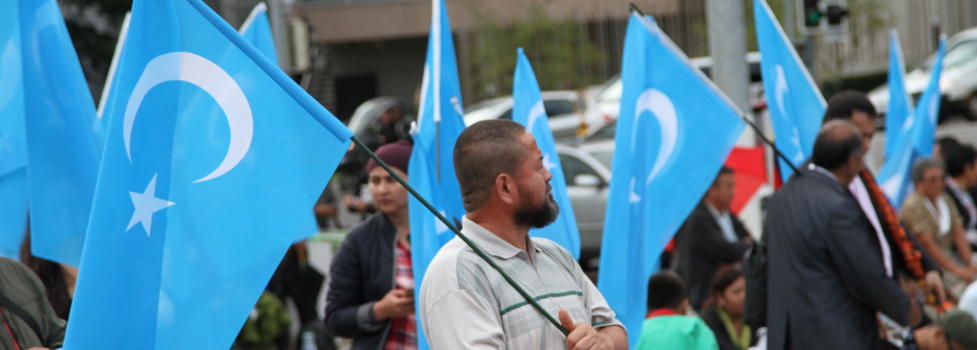GENEVA (Reuters) – France and Germany have called on China to close “re-education camps” in its restive far western region of Xinjiang where up to one million Uighurs and other Muslims are thought to be held for political indoctrination as pressure grows for UN action.
Reports of mass detentions and strict surveillance of the Turkic minority in Xinjiang have sparked a growing international outcry since coming to light last month.
Beijing says Xinjiang faces a serious threat from Islamist militants and separatists. Officials deny mistreating Muslims there, instead saying they are putting some people through “vocational” style courses to prevent militancy spreading.
China has blamed a group called the East Turkestan Islamic Movement for many of the attacks in recent years in Xinjiang, though some experts have questioned whether the group exists in any coherent form.
The calls by European powers at the U.N. Human Rights Council on Tuesday coincided with the first side-event held on the politically sensitive issue.
“What we are seeing now in East Turkestan is more than just repression, it is an intentional campaign of assimilation by the Chinese government targeting the Uighur identity,” Dolkun Isa, president of the exiled World Uyghur Congress, told the panel.
Sponsored
“Everything that makes us unique, our language, our culture, our religion – is under attack… Every Uighur family in the diaspora has a family member detained in the camps,” he said.
“Mass imprisonment of more than one million people cannot be justified on any grounds,” Isa said. “U.N. member states have an absolute obligation to act immediately.”
Inmates include his brother and at least 56 professors at Xinjiang University, he said.
“SOCIAL RE-ENGINEERING”
Adrian Zenz is a German academic and expert on Chinese minority policy whose research is based on government documents and accounts of visitors to the remote region.
“We can say this appears to be the most intensive social
re-engineering effort of the Chinese state since the Cultural Revolution,” he said.
“In Xinjiang we are looking at a minimum of several hundred thousand, possibly over one million in possibly over 1,000 to 1,200 facilities,” he said.
Zenz based his findings on satellite imagery, government procurement bids for building internment facilities, and recruitment notices for Mandarin teachers.
“The aim is political indoctrination, changing people, actually changing the hearts, minds and souls you could say.”
U.N. human rights chief Michelle Bachelet called on China last week to allow in monitors after the “deeply disturbing” allegations emerged.
But there appears to be little appetite among states for launching a U.N. probe, said John Fisher of Human Rights Watch.
“In similar circumstances in other countries, it would not be at all unwarranted for violations on this scale to be met with calls for a commission of inquiry, a fact-finding mission, a special rapporteur,” he said.
“Because it is China, states’ voices are muted.”
Source: reuters.com

Leave a Reply